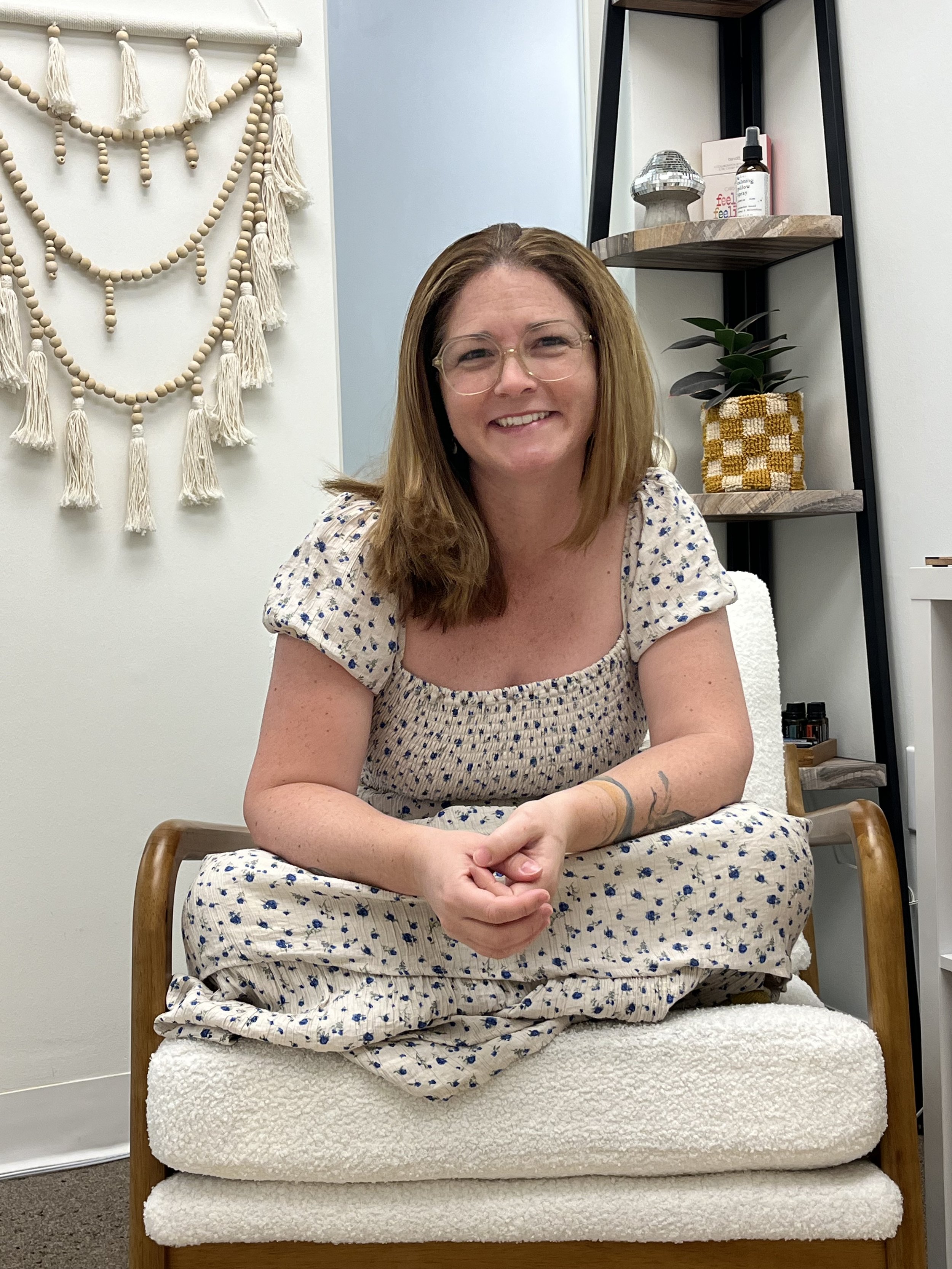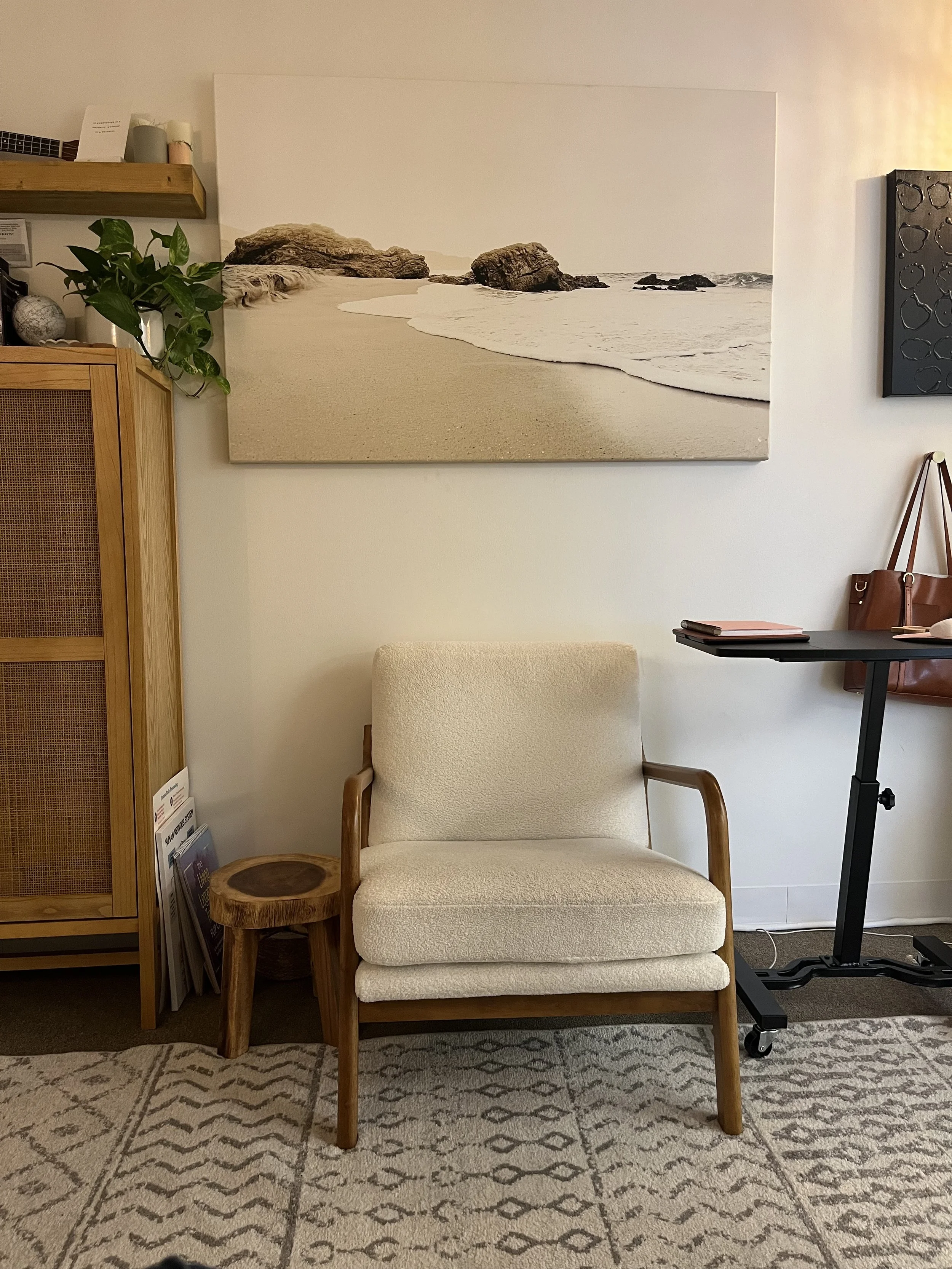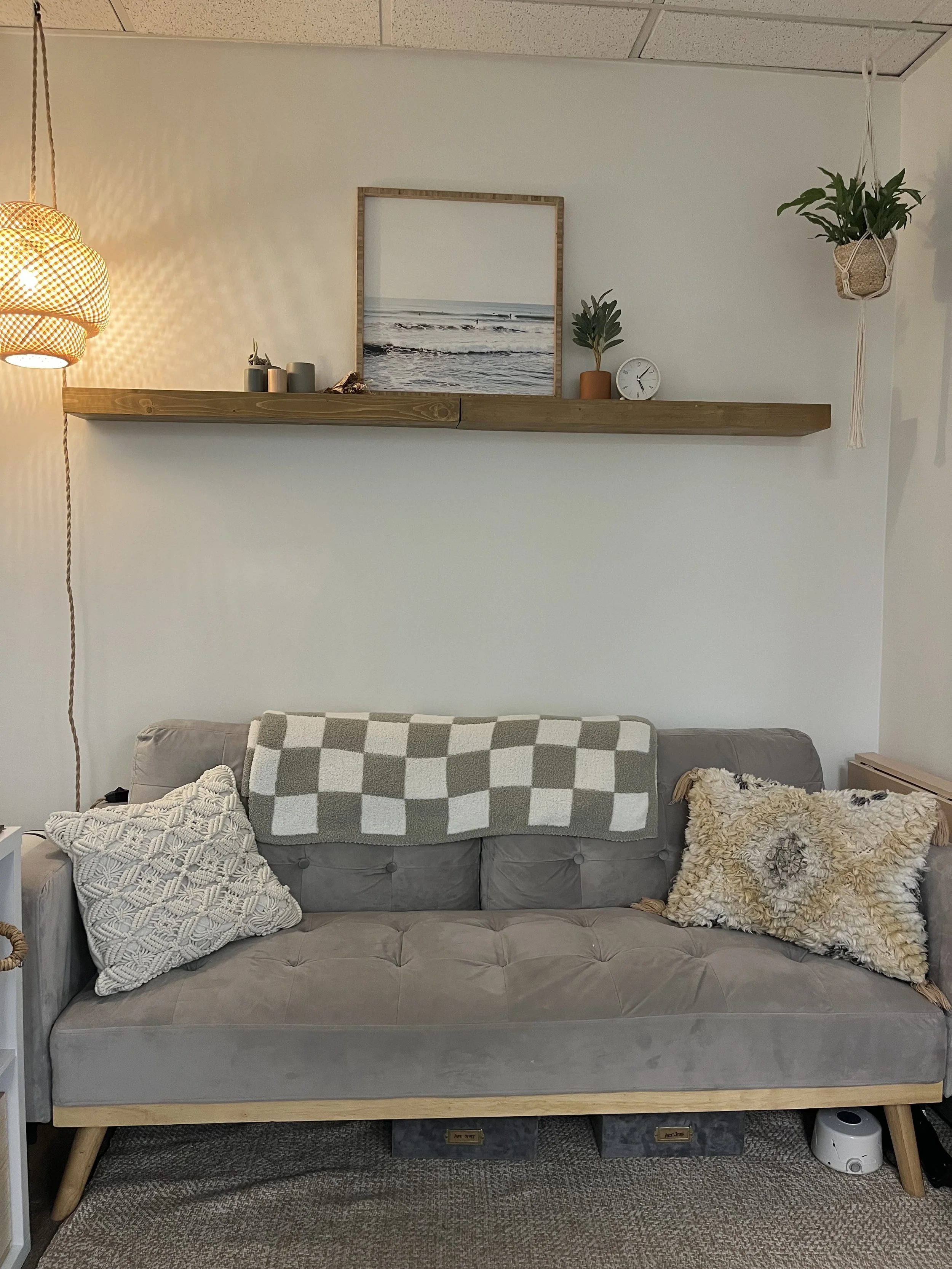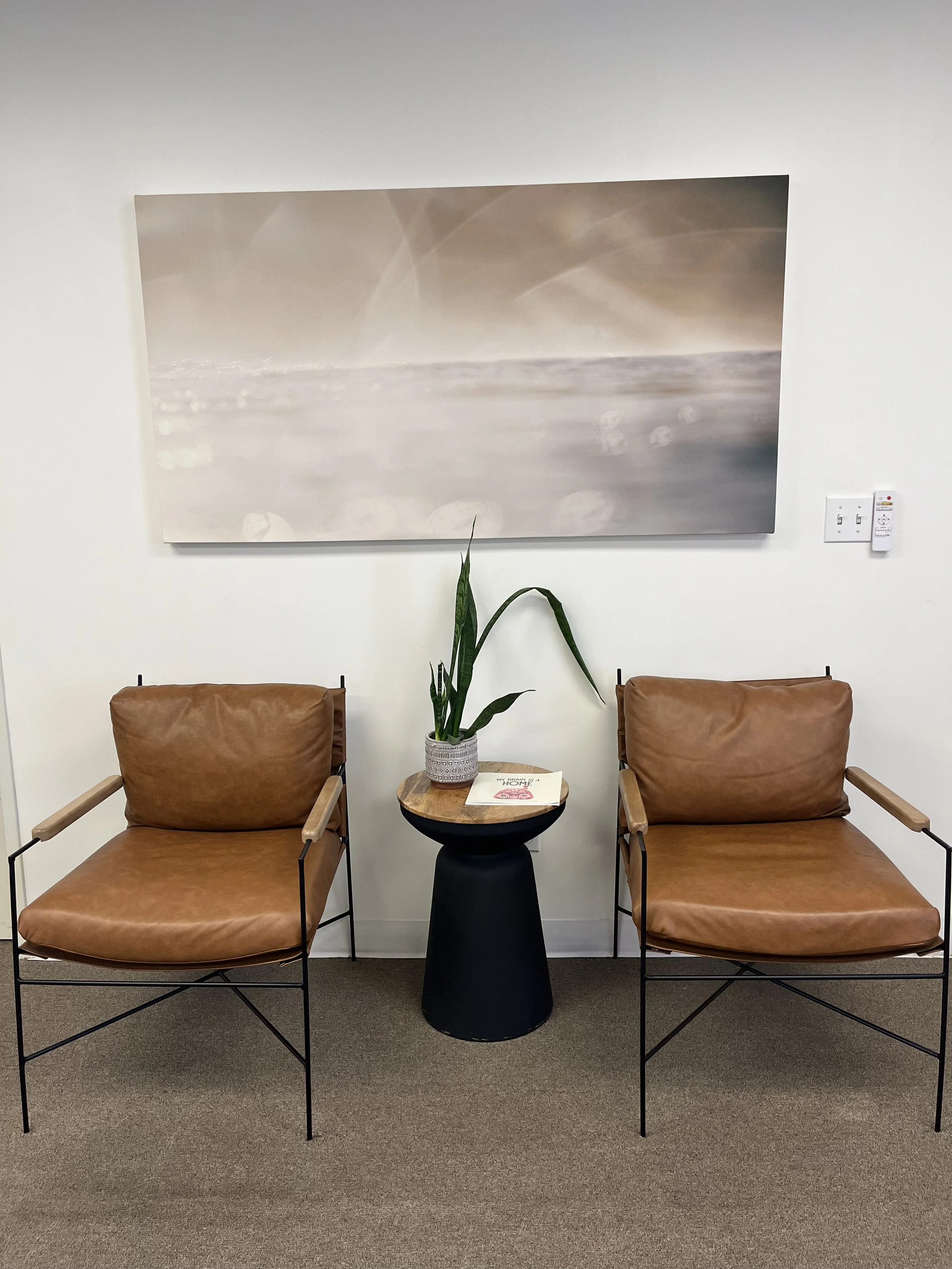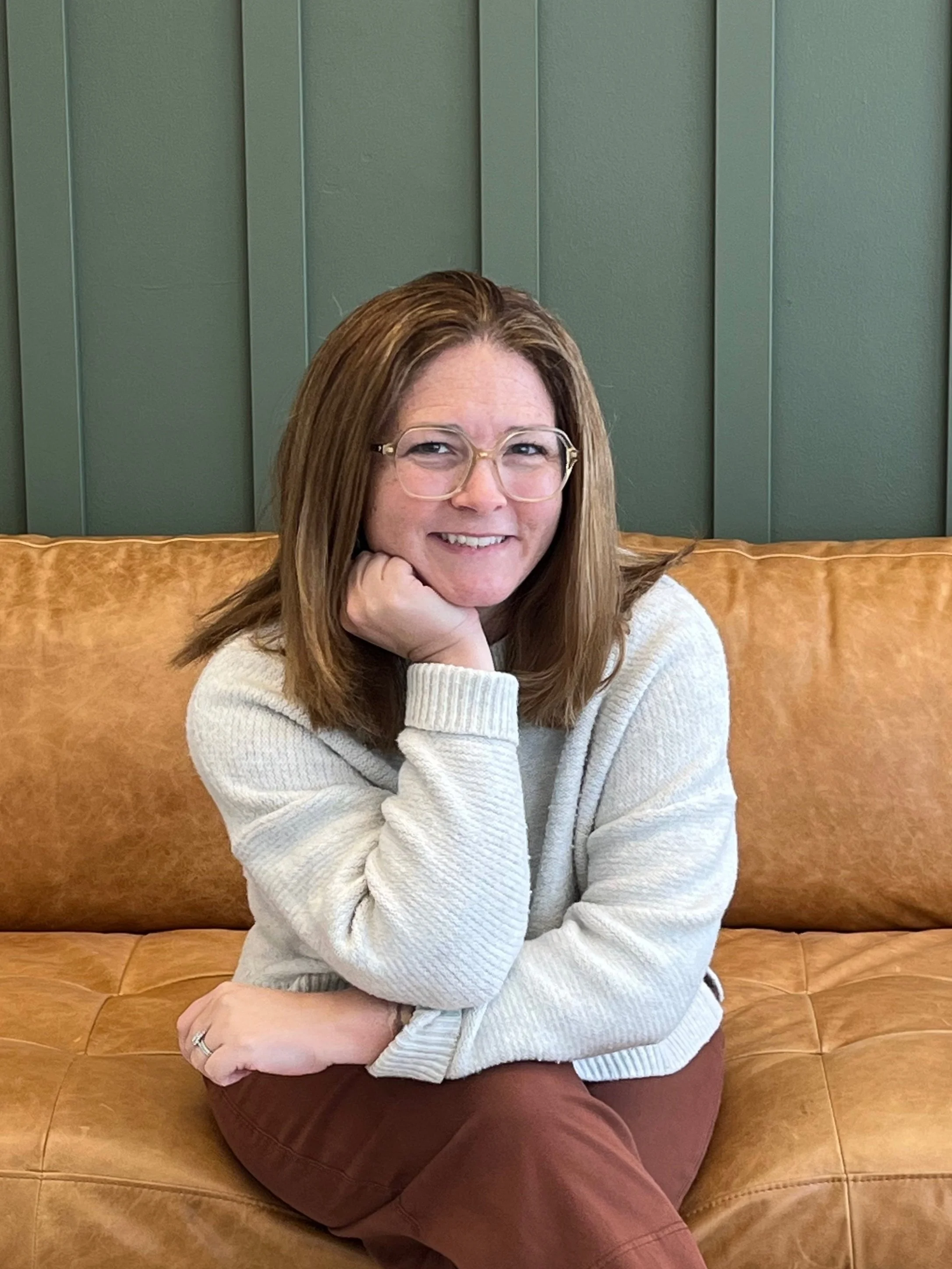Integrated :: Connected :: Directed
Jennie Denney M.A., AMFT #153029
Registered Associate Marriage and Family Therapist
Supervised by Rachel Daggett, M.S., LMFT #107858
I walk alongside clients through some of life’s most overwhelming chapters—whether that’s parenting a teen in crisis, healing from the wounds of religious trauma, rebuilding trust in a relationship, untangling identity when old frameworks no longer fit, or working through the lasting impact of trauma.
As a therapist, my approach is warm, collaborative, and grounded in both research and real life. Healing begins in a space where you feel safe and seen. From there, meaningful change can take root—not through judgment, but through curiosity and connection.
I’m not just trained in this work—I’ve lived parts of it. I know what it’s like to fear for your child’s safety. I’ve felt the disorientation and grief of faith deconstruction. I also know how isolating it can be to carry trauma without support. These experiences shape the empathy and perspective I bring to every session.
I hold a Master’s in Pastoral Studies from Azusa Pacific University and a Master’s in Marriage and Family Therapy from Hope International University. I’m currently pursuing my doctorate in Marriage and Family Therapy at Hope, where my research focuses on the stages of faith deconstruction and reconstruction. My advanced training includes Eye Movement Desensitization and Reprocessing (EMDR), a trauma-focused therapy that helps clients process painful memories in ways that restore calm, clarity, and choice.
My clinical work focuses on:
Parents of teens navigating mental health challenges, including self-harm
Individuals moving through faith transitions or recovering from religious trauma
Individuals with trauma histories, including those with complex trauma
Couples seeking reconnection and deeper understanding
I draw from attachment theory, parts work, Emotionally Focused Therapy (EFT), narrative therapy, and EMDR—tailoring every session to your unique story, pace, and goals.
Outside the therapy room, I’ve been married to my partner, Ryan, for over 20 years, and together we’re raising four kids, two dogs, and two cats. Southern California has been home to our family for the past seven years, and this community has become an important part of our story. My own life as a partner, parent, and seeker continues to shape how I show up for clients—with empathy, respect, and deep appreciation for the complexity of real life.
Schedule a free 15-minute consultation to see if working together might be the right next step.
While I have experience supporting a wide range of mental health challenges, my heart and training have led me to lean toward working in a few key areas.
That said—if what you’re going through doesn’t perfectly align with one of these areas, please still reach out. You don’t have to fit a category to deserve support, and I’d be honored to walk alongside you or help you find the right fit.
Working With Clients Who…
Faith Deconstruction/Reconstruction & Religious Trauma
Losing your faith—or rebuilding it—can feel like losing your foundation, your community, or even your sense of self. I work with individuals who are deconstructing harmful religious beliefs, healing from spiritual abuse, or trying to piece together what they believe now. Whether your journey involves grief, anger, fear, or freedom, you deserve a space to explore it honestly and safely. My approach is rooted in trauma awareness, identity work, and a deep respect for the complexity of faith and belonging. You don’t have to sort it all out at once—and you don’t have to do it alone.
Self-Harm & Emotional Regulation
When a child is self-harming, it can feel overwhelming for the whole family. I specialize in working with parents and their kids to not only understand the behavior, but also strengthen emotional regulation skills and rebuild connection. Self-harm is often a sign of deep distress, not defiance—and kids need support that goes beyond just stopping the behavior. I help families learn how to co-regulate, communicate with less fear, and create a safer emotional climate at home where healing becomes possible.
Trauma Informed EMDR
I offer EMDR therapy through a trauma-informed lens, which means I move at your pace, center your safety, and collaborate with you every step of the way. EMDR can be a powerful tool for processing past experiences that still impact your nervous system, relationships, and sense of self. Whether you're working through trauma, anxiety, or deep emotional stuck points, EMDR helps the brain reprocess painful memories so they no longer feel as intense or defining. My goal is to help you feel more grounded, whole, and empowered—without ever pushing you too fast.
Jennie’s Approach
At the heart of my work is the belief that healing happens in relationship—first with ourselves, then with those around us. I think of therapy as a space to explore the me (your inner world), the we (your relationships), and the thee (whatever larger meaning, purpose, or spiritual connection matters to you). When one part is out of sync, the others usually feel it too.
My approach weaves together several modalities that allow us to work deeply and relationally: attachment theory, EMDR for trauma processing, and experiential and narraative therapies. I use these tools to help clients understand the “why” behind their patterns, repair emotional wounds, and build a more connected, authentic life.
Whether you're here to explore long-standing pain or just trying to figure out why you keep getting stuck, I’ll meet you with curiosity, compassion, and tools that support real, lasting change.
Attachment
-
Attachment-based therapy looks at how our earliest relationships shape the way we relate to ourselves and others today. It helps us make sense of emotional patterns that sometimes run underneath the surface of our lives.
-
I believe that connection is the foundation for real healing. Exploring your attachment style can offer insight, compassion, and a path toward creating healthier relationships—with others and with yourself.
-
Understand why certain relationship patterns feel so hard to change
Build trust, connection, and emotional safety in new ways
Heal old wounds that may still impact your current relationships
-
Attached by Amir Levine and Rachel Heller — a clear, relatable guide to understanding attachment styles in adult relationships.
Parenting from the Inside Out by Dr. Dan Siegel and Mary Hartzell — a powerful resource for parents wanting to raise emotionally secure children by first understanding their own attachment stories.
Narrative/Experiential Elements
-
Experiential therapy invites you to feel and engage with your healing—not just talk about it. Narrative therapy focuses on understanding and reshaping the stories you tell yourself about who you are.
-
Healing isn’t just a cognitive process—it’s emotional, sensory, and deeply personal. By experiencing your emotions safely and exploring your personal narrative, you gain new agency and meaning over your story.
-
Reclaim your voice and agency in your life story
Process emotions that feel stuck or overwhelming
Find new meaning after loss, trauma, or identity shifts
-
The Body Keeps the Score by Dr. Bessel van der Kolk — a powerful exploration of how the body holds emotional memory and how experiential healing works.
Rising Strong by Brené Brown—How we make meaning out of our struggles, and how rewriting our internal stories leads to resilience.
Man’s Search for Meaning by Viktor Frankl—Finding personal meaning in suffering and choice; building identity through narrative and resilience.
EMDR
-
EMDR (Eye Movement Desensitization and Reprocessing) is a therapy approach that helps people heal from trauma, distressing memories, and emotional pain. It uses bilateral stimulation (like guided eye movements) to help the brain reprocess stuck or overwhelming experiences so they can be stored in a healthier way.
-
Sometimes talking alone isn’t enough to fully heal old wounds—especially trauma. EMDR offers a way to work through painful memories without needing to relive them in detail. I’m pursuing EMDR training because I believe it offers a powerful, research-backed pathway to healing that honors both the mind and the body’s natural ability to recover.
-
Process trauma and painful memories safely and efficiently
Reduce emotional triggers and reactivity
Build a stronger, calmer internal sense of self
Heal experiences that feel “stuck” even after traditional talk therapy
-
Getting Past Your Past by Dr. Francine Shapiro — an accessible guide to how EMDR helps people move beyond painful memories and reclaim their lives.
Contact Jennie
Interested in working together? Fill out some info and I will be in touch shortly! I can't wait to hear from you!

“Caring for others requires caring for oneself.”
—Dalai Lama—

